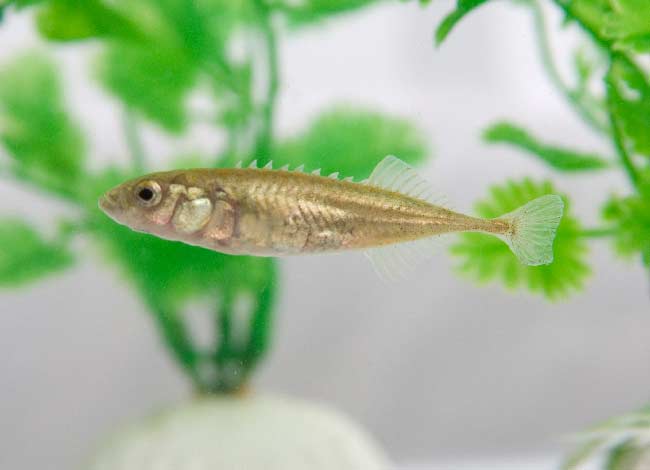Fish Are Surprisingly Smart

Fish lack many of our mental abilities but may use social learning strategies similar to those used by humans, according to new research.
Scientists have found that a certain fish species — called the nine-spined stickleback — can use information from its personal experience as well as observations of other fish to make the best decision about how to forage for food.
The work suggests that these fish may be capable of using social learning strategies that increase their overall fitness — strategies that so far have only been seen in humans, the researchers say.
In the experiment, the fish were placed in a tank with two feeders; let's call them A and B. The fish were taught that one feeder (A) was better than the other (B), meaning that feeder A gave more food. But then, the fish were shown contrary information: they observed a situation in which feeder B was the better feeder for a group of fish. After viewing this set-up, the majority of the fish (75 percent) preferred to eat from feeder B, even though a past experience had told them that this was a poor feeder.
But if the fish observed a situation in which a feeder gave about the same amount of food or less than the same amount of food that it had given during their personal experience, the fish did not have a preference for a particular feeder, the feeding was split 50:50.
The results showed that the fish were not simply copying other fish in their feeding habits. Rather, they were comparing two different pieces of information, personal and observed, and then using this information to select a feeder. If a feeder did not give a bigger "payoff" than another feeder they had eaten from, they did not overwhelmingly choose a different feeder.
"Lots of animals observe more experienced peers and that way gain foraging skills, develop food preferences, and learn how to evade predators," said Jeremy Kendal, a research fellow at Durham University, UK, and a study author. "But it is not always a recipe for success to simply copy someone. Animals are often better off being selective about when and who they copy."
Sign up for the Live Science daily newsletter now
Get the world’s most fascinating discoveries delivered straight to your inbox.
Selective copying behavior would be one way an individual could "hill climb" to a higher level of fitness. Scientists have given names to particular "hill climbing" strategies. For instance, if an individual copies someone when the behavior of the other person results in a bigger reward, this strategy is called "copy-if-better." The results of this study were not conclusive enough to say definitively which "hill climbing" strategy the fish were using, "but just the fact that there was a hill climbing strategy at all, we thought was interesting," Kendal told LiveScience.
If proven, this would be the first example of a social "hill climbing" strategy in animals. While there is evidence that other animals, such as chimps and New Caledonian crows, may use these social learning strategies, "the actual experiments to show it conclusively hasn't been done," said Kendal.
Ecology appears to play a role in the development of this type of social learning. The researchers think that the nine-spined stickleback may have evolved social learning skills because they are highly preyed upon. "Because they're undercover and can't go out to learn where foraging sites are on their own, there's been selection for developing this cognitive facility to be able to compare the payoffs of others in order to decide where to forage," said Kendal. In contrast, the closely related three-spined stickleback, which is not prone to predation, does not use these social strategies.
The results indicate that species don't need to be close evolutionary relatives of humans in order to use social learning.
"What we're finding is that it's not necessarily how closely related a species is to the human [that's the] defining feature of how cognitively complex you might be; it can also be your local ecological circumstances which provide selective pressures favoring evolution of these cognitive facilities," said Kendal.
The results were published in the April issue of the journal Behavior Ecology. The study was funded by the Biotechnology and Biological Science Research Council.

Rachael is a Live Science contributor, and was a former channel editor and senior writer for Live Science between 2010 and 2022. She has a master's degree in journalism from New York University's Science, Health and Environmental Reporting Program. She also holds a B.S. in molecular biology and an M.S. in biology from the University of California, San Diego. Her work has appeared in Scienceline, The Washington Post and Scientific American.









